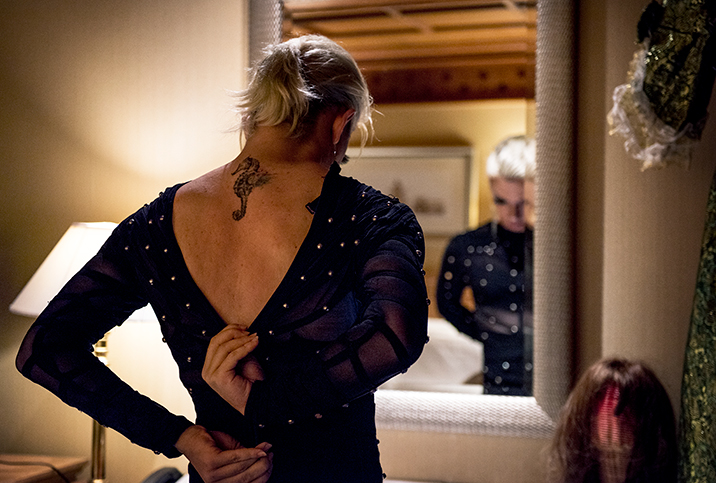Older Adults Face Challenges Coming Out as Transgender

In a world rife with transphobia, coming out as transgender at any age is no easy task. Older adults, in particular, may face unique challenges that younger trans people don't, and resources specific to this demographic are scarce.
In February 2020, San Francisco became the first city in the United States to fund public services for older trans adults and adults with disabilities, a trend that will hopefully continue throughout the country.
Why now?
Coming out as trans is a deeply personal journey, unique to each person, so there is no single reason why someone may have waited to come out. But for many elderly trans people, coming out in their teens or 20s would have meant doing so in a much less understanding world—one where the term “transgender” didn’t even exist. Some of them may not even have known that transitioning was an option.
As for motivations for coming out later in life, one study uncovered that those who transitioned as an elder tended to feel a sense of urgency about living authentically in their remaining years. Further research showed that transitioning is still beneficial even at older ages and leads to higher quality-of-life scores.
Medical transitioning & coverage
Two of the common medical treatments for gender dysphoria may be more complicated for older adults: hormone therapy and gender-affirming surgery. The use of hormone therapy, even for the treatment of medical conditions unrelated to gender dysphoria, is widely debated in the medical community, largely due to a lack of long-term studies. For older adults, hormone therapy may involve more risks for blood clots, pulmonary embolism, cardiovascular disease or low bone density.
Patients undergoing gender-affirming surgery actually tend to be older in general, due to the procedure's associated costs. Young people are simply less likely to be able to afford the surgery. However, as with any surgery, the risk of complications or a difficult recovery increases with age. Older adults are more likely to have an existing condition, such as diabetes or heart disease, that could make the surgery or recovery more difficult.
Adults transitioning in the U.S. may have concerns about whether their transition is covered by Medicare. Previously, Medicare did not cover such treatments, deeming them “experimental,” but since 2014 there has been no exclusion for transition-related health care deemed medically necessary.
Family & relationships
One of the more difficult parts of coming out for older trans adults is navigating relationships with family members. Those who transition at a younger age are less likely to have children or long-term partners at the time of their transition, meaning such loved ones will likely know them as their post-transition gender from the beginning of their relationship.
Older adults may have decades-long relationships and adult children, so coming out can be a shock to family members. More than 1 in 5 trans adults with children had a child end their relationship with them after coming out, and many marriages don’t survive the transition. Older adults do have resources and support groups available for those who wish to maintain their marriage through the transition.
Other challenges
At any age, trans people are more likely to face violence and discrimination than cisgender individuals. For older trans adults, their problems can be compounded by ageism, as well.
Housing
Older trans adults may face housing discrimination and the challenge of dealing with transphobia in senior-living or nursing facilities. In many cases, protections are required through the Fair Housing Act and the Federal Nursing Home Reform Act, but trans people still face significant housing discrimination despite these regulations.
Work
Although some trans individuals may be retired by the time they transition, the ones who are still working may face a two-pronged issue: workplace discrimination and the feeling it’s too late in life to change workplaces or careers. As of 2020, however, federal law prohibits anti-transgender discrimination in employment in the United States.
With opinions on LGBTQIA+ issues becoming more positive, now may be the best time in some older adults’ lives to come out. Although coming out at a later age presents its unique challenges, for many, the idea of living out their years authentically is worth it.


















